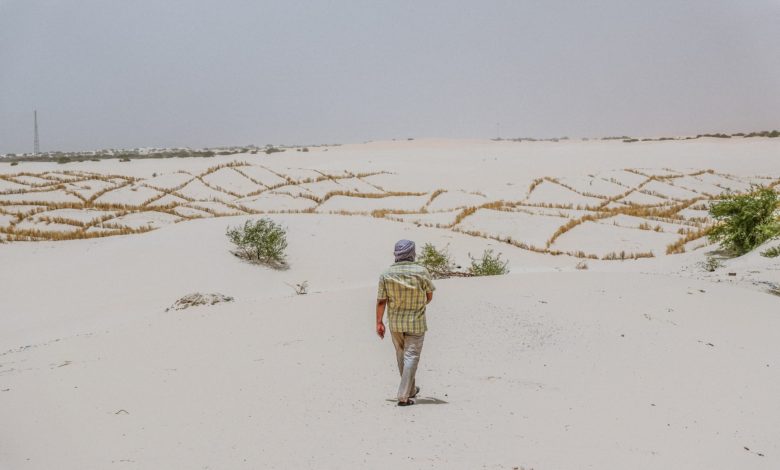#COP26: Climate Change Worsening Situation In Mali’s Lake Faguibine Area – ICRC
The organisation says climate change is transforming Lake Faguibine into a desert and exiling population.

According to a multimedia report from the International Committee of the Red Cross (ICRC), climate change-related security risks are making a dire situation worse in northern Mali’s Lake Faguibine area.
Lake Faguibine, located about 80 km from Timbuktu on the southern edge of the Sahara desert was once one of Mali’s most fertile areas and source of food in the sub-region but drought has impacted the Lake and conditions of the people.
The ICRC in its publication released in late September lamented that the climate crisis is making an already dire situation much worse, with people struggling to adapt and recover from repeated climate shocks.
“One month ahead of the UN Climate Change Conference, COP26, new testimony from Mali has laid bare how climate risks threaten communities in conflict zones,” it stated.
The 26th session of the Conference of the Parties (COP 26) hosted by the UK in partnership with Italy, scheduled to take place in Glasgow between October and November is expected to bring together heads of state, climate experts and activists to agree on a coordinated effort to address climate change.
Patrick Youssef, ICRC’s regional director for Africa, was quoted to have said “Climate change hits the poorest and most vulnerable in the world.”
“Farmers and other communities are unfortunately unable to cope with climate change. At COP26 we call on world leaders to take concrete action, concrete engagement, to bring climate action closest to those suffering in silence.”
The report highlighted that gradually, sand dunes have replaced vast expanses of water and farming land irrigated by flooding from the River Niger.
“Today, the region’s inhabitants have to make do with a rainy season of just three months, from July to September. For the rest of the year, temperatures approach 50°C.”
The report added that the environmental and climate trends have affected fishing, farming and livestock activities including the relationship between herders and farmers in the area.
“For the six lakeside municipalities, the consequences have been catastrophic. Fishing is a thing of the past, and there has been a huge drop in agriculture and livestock activities.”
“Sand is devouring homes in the villages of Bilal Bancor, Bintagoungou and Mbouna.”
A farmer, Mahamadou Ousmane complained that “Not a day goes by without conflict between livestock herders and farmers. There’s not much space, and everyone wants a bit of what there is. So there’s tension.”
Hama Abacrene, the mayor of the commune Bintagoungou in Timbuktu region told the ICRC: “A force stronger than us has come and has changed everything: it is climate change. This school had to be abandoned due to strong winds and soil erosion. Imagine the disaster for these 400 children who are on their own.”
The ICRC revealed that it has set up a project to stabilize 10 hectares of sand dunes in Bilal Bancor.
“The idea is to block off the main route by which the sand is advancing on the village. More than 100 people from vulnerable households took part, which gave them the opportunity to earn a daily wage for approximately 20 days.”
Support Our Journalism
There are millions of ordinary people affected by conflict in Africa whose stories are missing in the mainstream media. HumAngle is determined to tell those challenging and under-reported stories, hoping that the people impacted by these conflicts will find the safety and security they deserve.
To ensure that we continue to provide public service coverage, we have a small favour to ask you. We want you to be part of our journalistic endeavour by contributing a token to us.
Your donation will further promote a robust, free, and independent media.
Donate HereStay Closer To The Stories That Matter




